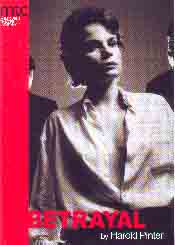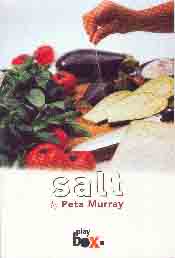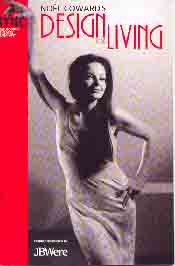Don Bridges Australia
Claudine Jones San Francisco
Michael Bettencourt Boston
Ren Powell Norway
Ned Bobkoff Buffalo
Steve&Lucille Esquerré New Orleans


The Latest From Australia
Movies:
News and rumours: Congratulations to Russell Crowe on his academy award for Gladiators. Nice to see the other Aussie there on the night, the wonderful Geoffrey Rush, who has always been one of my favourite stage actors. Anytime you see Russell in a bar, it’s a pretty sure bet that Geoffrey will be somewhere working on a character or doing a class. It’s a pity Hollywood has to be so controlled by the money and publicity (who is he sleeping with this week?) and by who is the biggest box-office star, and cannot just look at great performances.
New Aussie movie about to be released in the States is “The Dish.” It is a terrific movie made about the race to land a man on the moon from the perspective of the guys in Australia who operated the Radio Telescope dish that caught the signals from the moon, and carried the TV pictures to the world. This is a very funny quirky movie. For more info go to a great flash site: http://thedishmovie.warnerbros.com/index_flashmain.html
Watch out for one of Australia's hottest exports Guy Pearce in the exciting thriller “Memento” due for release soon by BVI. This is reputedly Guy's best performance so far and that means it must be very good indeed. Oh and from what I hear it’s a movie where you will have to actually think.
Theatre:
Miss Tanaka: Handspan Visual Theatre and Playbox Theatre, Writer John Romeril
Director and script collaborator David Bell.
“Sunset. A giant Turtle hauls itself across the sand. The sound of Fred Astaire floats across the water. An old man plays poker with two frogs. Giant pearls and fleets of boats appear out of thin air. Didgeridoo and Japanese drums whip up a storm of spirits, dragons, cockfights and sumo. Welcome to Australia’s own Wild West. Based on a yarn by Xavier Herbert, Miss Tanaka is a bittersweet comedy set in the brawling township of Broome in the 1930s. Two rival pearl divers – one a Malay, one Japanese – fall in love with the same woman: the beautiful and mysterious Miss Tanaka.”
Handspan Visual Theatre is a company that over the years has delivered superb puppetry and beautiful images to our theatre scene. This story lends itself fairly well to the Handspan treatment although at times I found some of the imagery tried just a little too hard to captivate us. The gorgeous full sized giant turtle puppet is a highlight of the production however and its movement although slightly stilted at times is a joy.
A young man Mr. Mott (Jeremy Stanford) arrives in the wild town of Broome to take up his inheritance of a fleet of pearl luggers. He immediately meets a young Aborigine/Japanese man who is the soul of this place. He knows the people and the stories and the history. His father is an old pearl diver whose lungs are shot and whose body is crippled from the excesses of nitrogen in his blood through diving. He moves like a turtle, but loves to drink and smoke opium and gamble. Therein lies the seed for the problems that beset his son. He wagers his son’s working life to the Malay and the Japanese pearlers and loses both times. He can’t pay of course so an elaborate plan evolves to save the father and son pair from ruin.
Miss Tanaka is brought on the scene and captivates all the men folk who bid for her hand in marriage. But all is not what it seems. There are some wonderful fantasy sequences and the production uses live music, puppetry, superb lighting, film and projected images to take us on this journey. This is a very technical show and probably suffered from too little time to get those aspects right. It takes time to pull all those strings together, but when they do cohere the moments are true magic.
Verdict: some magical moments.
Betrayal: Melbourne Theatre Company. Writer: Harold Pinter Director: Kate Cherry
I had never seen this play before and the story, the performances and the device of telling the  story in reverse engrossed me. We know the outcome, (two people meeting two years after their affair has ended,) but we are left wondering about the circumstances that
caused their break-up and the beginning of their affair. Kate Cherry’s direction is superb and the betrayal unfolds slowly but surely with wonderful performances by Sigrid Thornton as Emma, Richard Piper as Jerry, Martin
Jacobs as Robert and all too briefly, Adriano Cortese as the waiter. The performances are assured and lively and unpredictable in the choices made. These are fine actors indeed. Sigrid Thornton is one of Australia’s finest film
and TV actors and she has been seen in many and varied roles across the years. This is her first foray on the stage, and I sincerely hope it won’t be her last. She looked like she belonged there, and gave a charming performance. I
hadn’t seen Martin Jacobs before and I was delighted by his craft and understanding. He gave us a very grumpy Robert, who seemed about to throttle the waiter during the tense but funny restaurant scene. Richard Piper
as usual was excellent in the role of Jerry, the man enjoying the delights at the apex of the triangle. The set and costumes designed by Anna Borghesi exactly caught the tone and flavour of the play which was time shifted
to take place between 1988 and 1997. The same set served all the scenes with the addition of a tablecloth, a bedspread, or the opening of doors to reveal a red glass wall that immediately suggested a hotel in Venice.
story in reverse engrossed me. We know the outcome, (two people meeting two years after their affair has ended,) but we are left wondering about the circumstances that
caused their break-up and the beginning of their affair. Kate Cherry’s direction is superb and the betrayal unfolds slowly but surely with wonderful performances by Sigrid Thornton as Emma, Richard Piper as Jerry, Martin
Jacobs as Robert and all too briefly, Adriano Cortese as the waiter. The performances are assured and lively and unpredictable in the choices made. These are fine actors indeed. Sigrid Thornton is one of Australia’s finest film
and TV actors and she has been seen in many and varied roles across the years. This is her first foray on the stage, and I sincerely hope it won’t be her last. She looked like she belonged there, and gave a charming performance. I
hadn’t seen Martin Jacobs before and I was delighted by his craft and understanding. He gave us a very grumpy Robert, who seemed about to throttle the waiter during the tense but funny restaurant scene. Richard Piper
as usual was excellent in the role of Jerry, the man enjoying the delights at the apex of the triangle. The set and costumes designed by Anna Borghesi exactly caught the tone and flavour of the play which was time shifted
to take place between 1988 and 1997. The same set served all the scenes with the addition of a tablecloth, a bedspread, or the opening of doors to reveal a red glass wall that immediately suggested a hotel in Venice.
Verdict: No pause to regret.
Salt: Playbox Theatre Company. Writer: Peta Murray. Director: Aubrey Mellor.
 Food; it’s cooking, eating and preparation are at the heart of this play, and it is
a gourmet’s delight sitting in the audience. I saw a
Food; it’s cooking, eating and preparation are at the heart of this play, and it is
a gourmet’s delight sitting in the audience. I saw a
6-30pm performance and a group of us were forced to go and eat straight after the show. Peta Murray has constructed a play that doesn’t just invite the actors to play in the kitchen, it demands it. The Mother, Laurel, played by Julia Blake is the type of cook who would prefer to open a can than prepare anything fresh, but her daughter Meg (Victoria Eagger) is a dab hand in the kitchen Her character description includes the direction that she be very handy with a knife. Victoria is certainly that, chopping and dicing her way through various dishes that get the taste buds working as the smells drift over the audience. The third actor is Paul English (The Man) and he plays various ghosts from the women’s pasts. Fathers, lovers, and husbands all come and go through various kitchen cupboards and even into the fridge at one stage.
The set by Trina Parker is a triumph of ingenuity and includes cupboards that open and close with inside lights that show up the food delight that is at that moment being tackled in the kitchen. A special mention should be made of the stage management team for whom this play must have been a nightmare of detail. It is seamlessly handled, and ingredients and utensils appear in cupboards that a moment a go were empty or full of other things. The play uses the metaphor of five different common foods that each has poisonous properties of one form or another. We start with Egg Plant (stuffed), tomatoes (soup), followed by Mushrooms (sautéed), Potatoes (au gratin) and finally Rhubarb (preserved in jars).
The man talks about each of the foods in a pseudo documentary style. He tells us the history and the poisonous capabilities of each item in fascinating little asides that all point to the fact that one-day the daughter may need to use these capabilities “help her mother over.” Her mother is in the throes of Alzheimer’s and we watch her gradual decline throughout the play. But we also flash back to who she was and where they have come from in their mother daughter relationship. The play eventually comes full circle until the daughter feeding the mother becomes “the mother.” This is an intriguing and charming night of culinary theatre and will be touring extensively throughout Australia in the next 12 months.
Verdict: If you use the best ingredients, you get a quality product.
Design For Living. Melbourne Theatre Company. Writer: Noel Coward. Director: Rodney Fisher.
 A small garret in Paris opens the play and when the curtain went up Dale
Ferguson’s set design immediately transported us to an artist’s studio of the 30’s. The wonderful designs continued throughout the play and took us to a suite in London and finally an absolutely magnificent apartment in New York.
Very clever sets indeed.
A small garret in Paris opens the play and when the curtain went up Dale
Ferguson’s set design immediately transported us to an artist’s studio of the 30’s. The wonderful designs continued throughout the play and took us to a suite in London and finally an absolutely magnificent apartment in New York.
Very clever sets indeed.
Opening a review with a word about the set can sometimes be misconstrued as saying that it was the best thing about the production, but this is certainly not the case in this instance. All the elements go together to make this a very entertaining evening of theatre. The Coward masterpiece to begin with is still a delight 70 years later and still has impact. The performances, particularly Josephine Byrnes as Gilda, Rhys Muldoon as Otto, and Dennis Olsen as Ernest are beautiful to watch. Nathan Page as Leo does a good job but lacks the experience of the others. All the supporting actors do their jobs admirably with Bridget Walters and Patrick Frost both taking on two contrasting roles and accents with alacrity. Michael Robinson and Melissa Madden-Gray do a good job of the New York couple that witness the arrival of Gilda’s two lovers towards the end of the play. Michael was a little more comfortable with the comic elements than Melissa who in my opinion was trying just that little bit too hard to be funny.
This production is a co-production with the State Theatre Company of South Australia, and was directed in deft and assured style by Rodney Fisher.
Verdict: Designed to impress.
© 2001 Don Bridges ALL RIGHTS RESERVED
© 2000-2001 Aviar-DKA Ltd. All rights reserved (including authors’ and individual copyrights are indicated). No part of this material may be reproduced, translated, transmitted, framed or stored in a retrieval system for public or private use without the written permission of the publisher and the individual copyright holder. For permissions, contact publishers@scene4.com.
